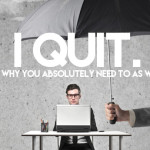Sometimes, the things we need most in a particular season of life are hidden in packages that are hardly obvious and sometimes even offensive to us. But I think that’s the point. I think God has a way of positioning us for growth and progress that at times goes against the grain of familiarity, comfort, and our beloved “have it your way” course of living, especially when it’s so easy to hide behind facades. The challenge therein is to be willing to abandon our personal biases about situations and people in order to mine a diamond in the rough, so-to-speak.
Most importantly, I believe we must start by abandoning our shallow biases about—you guessed it—ourselves; biases such as:
My past is too messy.
I’m not educated enough.
I don’t make enough money.
I’m not physically attractive enough.
I’m not qualified.
I can’t hold onto a relationship.
I’m scared of intimacy.
I have irrational fears.
I’m Looking at the Man in the Mirror
Being totally honest with ourselves is more difficult than one would suspect. In fact, living life with a certain amount of vulnerability and transparency requires courage and confidence on the inside—even when it’s embarrassing to do so.
Last week, I stuck my neck out about a personal battle I’ve faced for the last few years. Reluctantly, I published the blog post, very unsure about the subsequent reaction from readers. As I pushed the blog post into the eyes of the public, the questions fired-away inside my mind:
Will this discredit my influence? Will I no longer been seen as a voice of courage? What will people think about my credibility as a leader? What if people think I’m a broken, weak person?
Whether or not the questions were rational is inconsequential; they showed-up at the doorstep of my mind and I had a choice to make: would I let my guard down for the sake of the readers who feel trapped by the same vice, afraid to get help, or would I leave this area of my life in a dark corner where no one would notice and where cobwebs of complication and fear blanketed my heart and mind for years?
The conclusion upon which I landed was that because I gained victory over anxiety, it would be selfish and arrogant of me to not share my story with you. Simply put, my vulnerability could be a lifeline to someone else’s freedom.
So I did.
And as a result of doing so, emails flooded my inbox. The responses were both validating and affirming: “Thanks for sharing your thoughts and experiences. Your article found its target.” “I’m so thankful for your transparency. It has opened my eyes a lot!” “Thank you for giving me the courage to believe for total freedom.”
While scouring the emails and comments from readers, I realized two things: 1.) Vulnerability is powerful. 2.) Trust builds a bridge to freedom by saying two simple words: “me too.”
And I believe it starts when we’re okay with sharing our brokenness.
The Beautiful Broken
Broken things aren’t useless things, nor are broken people useless people. In fact, in my estimation, they’re proof that they’ve been faithful, tried-and-true, used for a great purpose, and that they simply need repair. I have a 50-year-old stainless steel pot that is used for one purpose: making my family’s three-generation-old meatballs and sauce recipe. Two weeks ago, the handle broke. Was the pot rendered useless? Certainly not. In fact, the feeble handle was a sign of 50 years worth of purpose. Similarly, in life, we shy away from weakness and brokenness (and consequently vulnerability) because somehow, we perceive the condition as uselessness. Yet even the apostle Paul said, “When I am weak, I am strong.” (See 2 Corinthians 12:10)
What I’m getting at is that championing personal brokenness for the sake of remaining in a state of brokenness isn’t the point either. But it takes an incredible amount of courage to be okay with our imperfection and allow it to bridge connection to others as we journey through life with one another.
The Power of “We”
I believe it is why there’s power in saying “we.” I hold a strong conviction that all of us long for deep, meaningful connection with others. For a moment though, think about the converse. Which emotions are evoked when you hear “you need help…you have a problem…you’re weak”? I’ll guess fear, condemnation, and isolation. But when we struggle with insecurity, fear, anxiety, shame, or lack self-worth, it opens the door to have compassion for one another in this journey of life. But here’s the key: we can only extend compassion to others in the degree we have compassion for ourselves.
What do you suspect is the culprit behind this mess? Shame. And shame, I believe, is the fear of humiliation, rejection, and isolation. That is, if people see this broken part of me, they will somehow disqualify me from receiving validation and acceptance from them.
But for your sake and mine, I want to be a person who is willing to let go of facades and pretenses for authenticity.
Don’t you? It’s time to come out of hiding.




